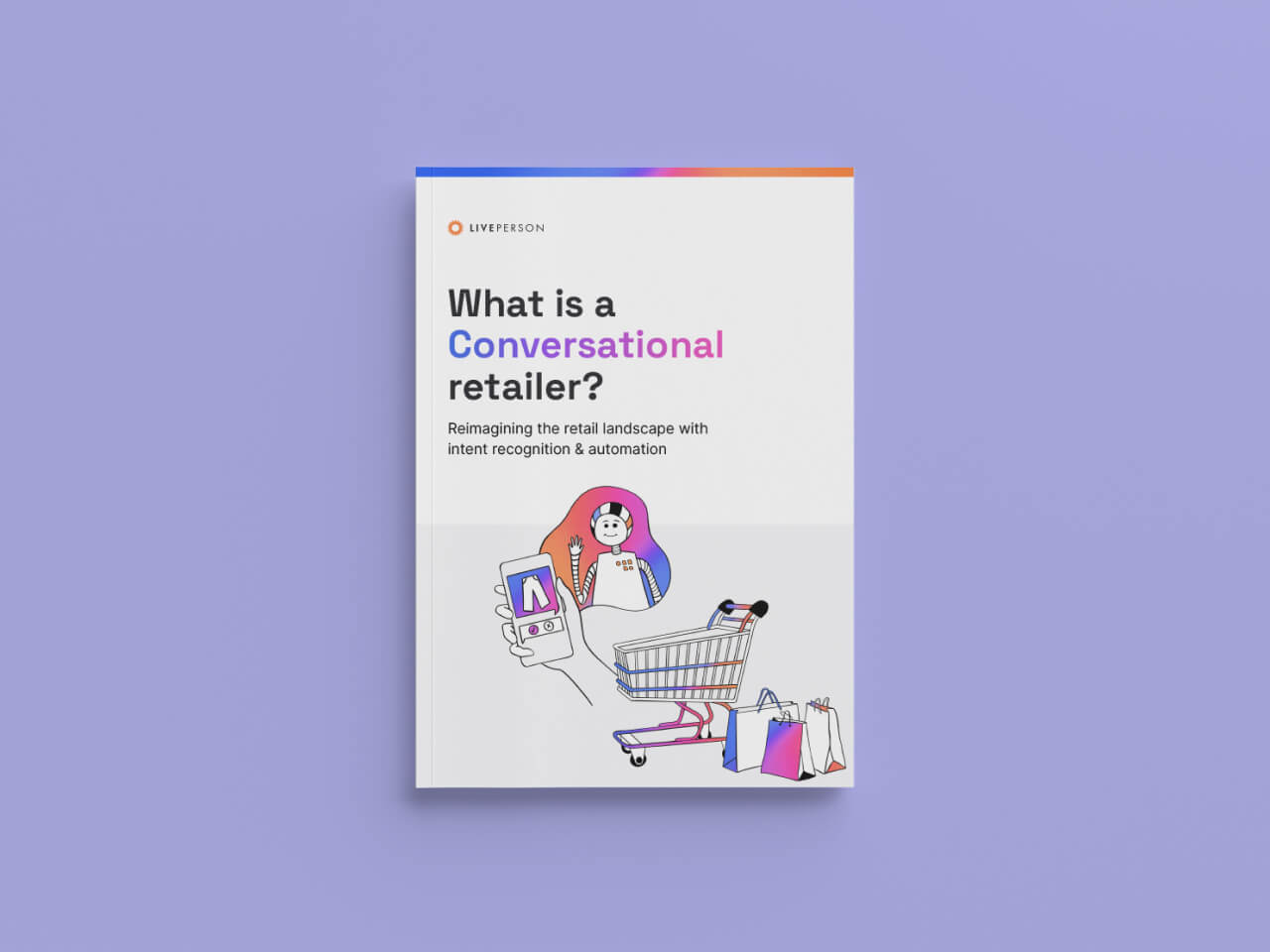REtail Chatbot AnalysisAutomate up to 69.2% of consumer conversations in retail
We analyzed millions of anonymized conversations and found that the majority for the retail industry can be automated with a conversational AI-powered retail chatbot. Download our Conversational Retailer guide to get started.

Building a world-class AI-powered retail chatbot
AI-powered retail chatbots have proven to significantly reduce customer care costs, enhance the customer experience (and the experience of customer service agents), and build stronger customer engagement. But rolling out a viable solution can sound like a daunting task. How and where to get started are fundamental questions you have to answer to build a plan and strategy that will achieve a successful, scalable bot program that can truly improve customer satisfaction.

The top 14 conversation topics for retail businesses
LivePerson AI and machine-learning algorithms have determined the 14 most prevalent customer queries for businesses in the retail sector. Our guide outlines them all.

Your expert guide to retail chatbots
Of the conversations analyzed, 69.2% were found to be suitable for retail bots. They are great opportunities to start capturing expense savings through automation, while still delivering exceptional customer service. In fact, LivePerson recommends these anonymized customer data use cases as a starting point to building a world-class AI-powered retail chatbot. Download our guide to learn how and where to get started.
Retail chatbot FAQs
Get the guideConversational AI is transforming the retail industry by enabling automated, real-time interactions with customers through various channels like websites, apps, and social media platforms. AI-driven chatbots can handle a large volume of customer inquiries, from answering common questions to providing personalized product recommendations. Retailers are using conversational AI to streamline customer service, enhance the shopping experience, and improve overall operational efficiency. By automating, retailers can reduce costs while offering faster, 24/7 support. Conversational AI also helps gather valuable customer data, which can be used to tailor marketing efforts, optimize inventory management, and drive sales.
Retail chatbots can provide immediate assistance to customers and personalize interactions. Whether helping customers track their orders, offering product recommendations, or managing returns, retail chatbots ensure faster service, reduced wait times, and a more engaging, conversational shopping journey. By leveraging AI-powered retail chatbots, retailers can offer consistent support across multiple touchpoints, ensuring customers have access to information whenever they need it. This seamless integration of chatbots in the shopping process has led to higher customer satisfaction and stronger brand loyalty.
Several leading retail brands have successfully implemented chatbots to improve customer service and drive engagement. For instance, TheRealReal uses chatbots to build trust and eliminate friction in the consigner process, providing white-glove digital customer experiences. A top jewelry retailer implemented web messaging and a “greeter” bot to handle simple service requests and route relevant customers to sales agents faste. These retail chatbot examples demonstrate how AI-powered chatbots can effectively provide personalized assistance at scale, creating a more efficient and engaging shopping experience.
Yes, conversational AI chatbots have been shown to improve overall sales in retail by enhancing customer engagement, reducing cart abandonment, and driving conversions through personalized recommendations and instant support. Chatbots can guide customers through their purchase journey, from answering product-related questions to assisting with payment or shipping queries. This allows retailers to upsell and cross-sell products based on customer preferences and past behaviors. In addition, chatbots help reduce friction in the buying process by addressing customer concerns in real-time, which leads to higher conversion rates and increased sales. Several studies suggest that retailers leveraging conversational AI have seen measurable improvements in both sales performance and customer satisfaction. For example, the top jewelry retailer mentioned earlier found their conversational AI improvements led to a 13% conversion rate and $50 million in incremental sales.
